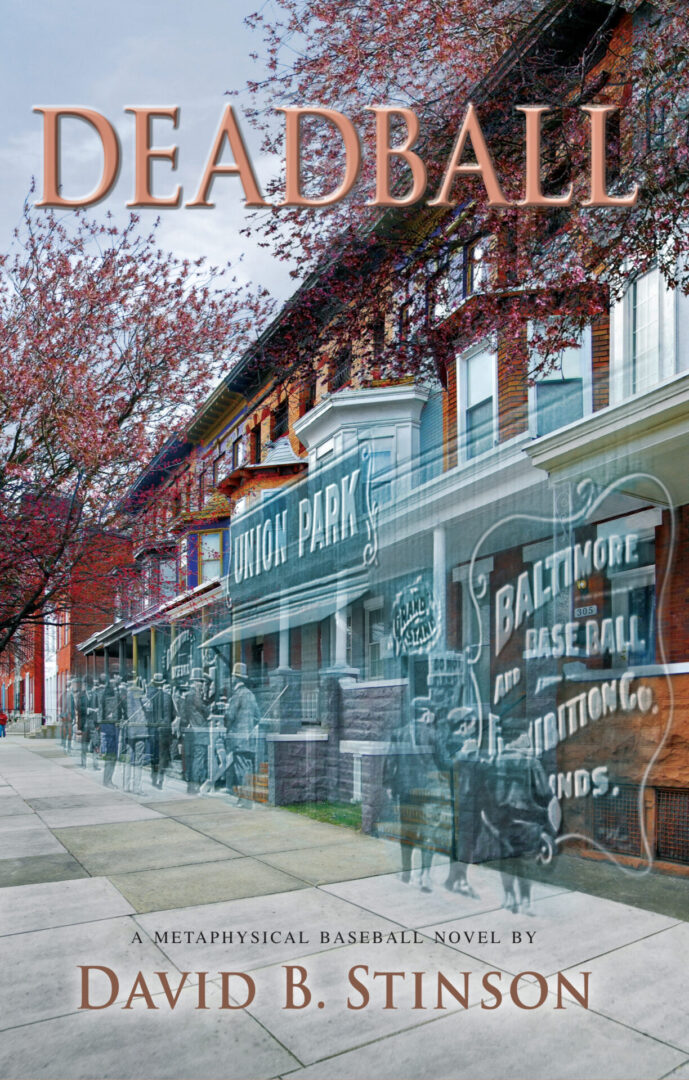Memorial Stadium in Baltimore, Maryland, was the home of the American League Baltimore Orioles from 1954 through the 1991 season.

The National Football League Baltimore Colts played at Memorial Stadium from 1953 through the 1983 season.

Memorial Stadium was built on the site of an earlier stadium, known as Baltimore Stadium, Venable Stadium, and Municipal Stadium, which was constructed in 1922.

The inaugural game played at the opening of Baltimore Stadium on December 2, 1922, was the Annual Football Game between the Third Corps Area, United States Army, and the Marines.
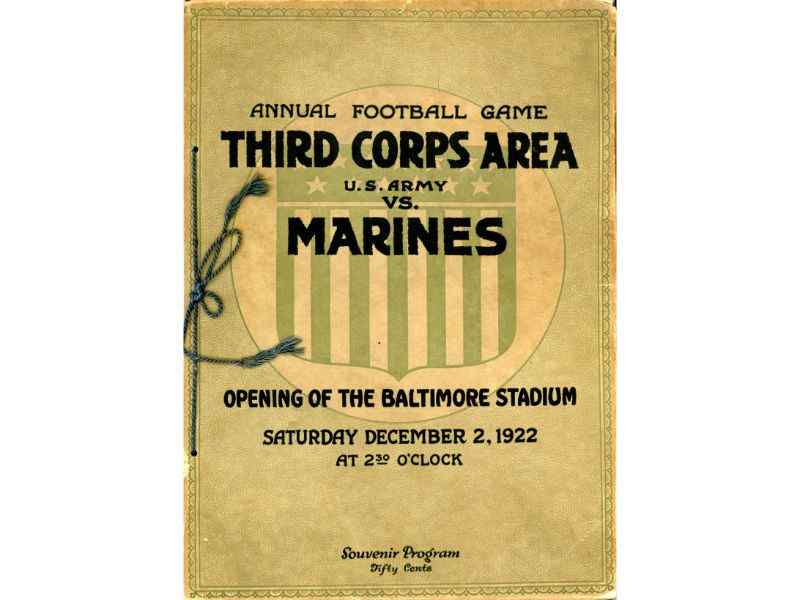
Baltimore Stadium was primarily a football stadium, although the International League Orioles played their home games there after fire destroyed Oriole Park V in 1944. The Baltimore Elite Giants also played some of their home games at Baltimore Stadium in the late 1940s. For a time after the death of Baltimore native Babe Ruth, the structure was known as Babe Ruth Stadium Stadium.

In 1949, construction began converting Municipal Stadium to Memorial Stadium.
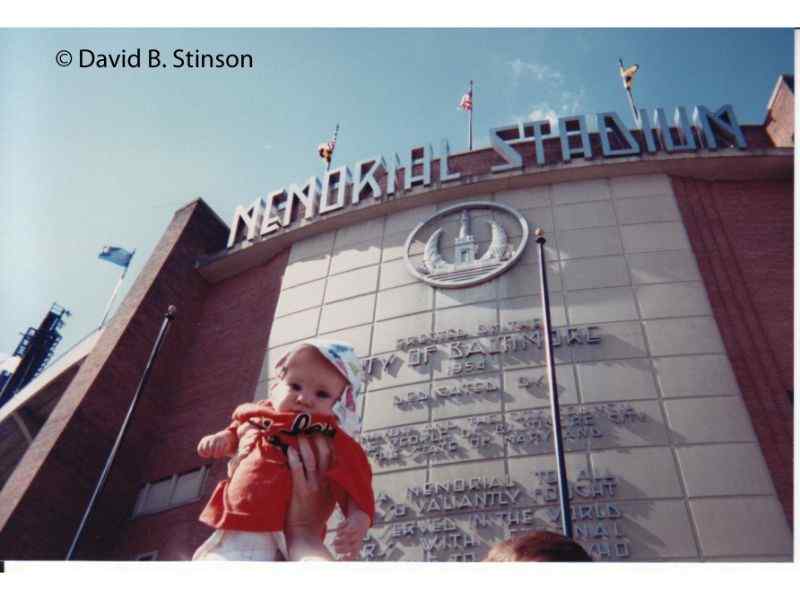
The stadium was dedicated “As a memorial to all who so valiantly fought and served in the World Wars with eternal gratitude to those who made the ultimate supreme sacrifice to preserve equality and freedom throughout the world. Time will not dim the glory of their deeds.” The last line is a quote from General John J. Pershing, who was the first chairperson of the American Battle Monuments Commission.
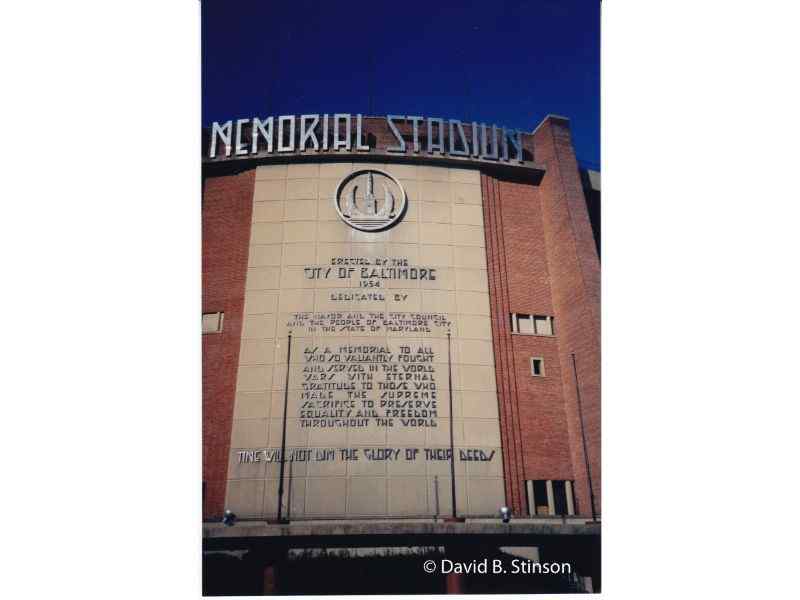
An unofficial name for Memorial Stadium was the Old Grey Lady of 33rd Street.
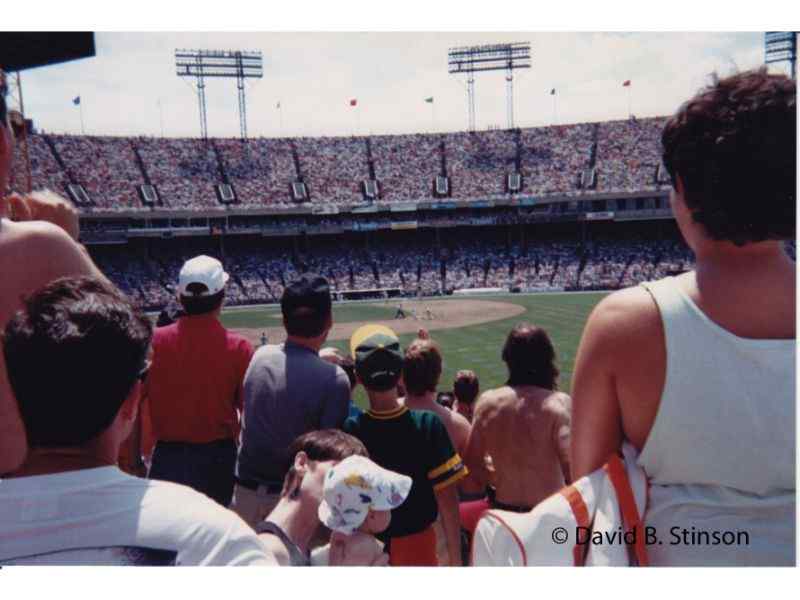
The seating in the upper reaches of the stadium and throughout the uncovered, outfield bleachers, was bench seating.
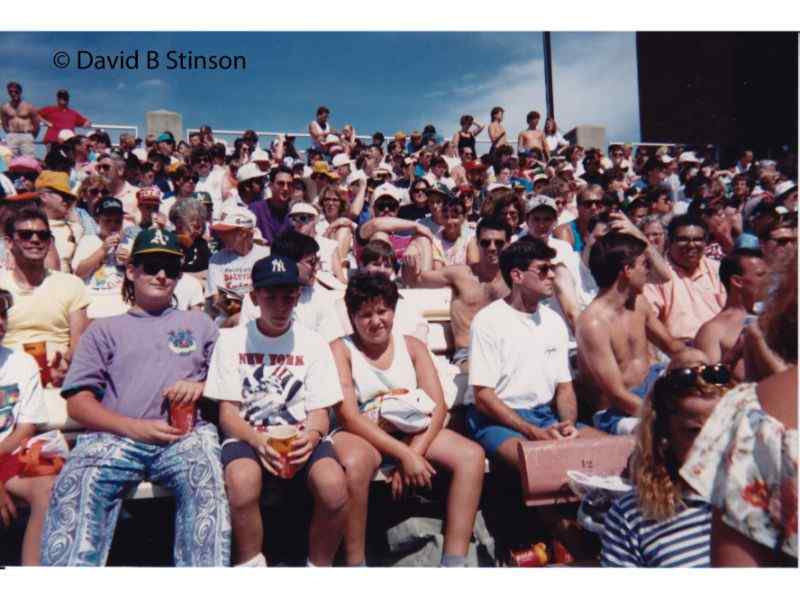
The press box was located behind home plate between the upper and lower decks. Steel camera decks were located to the right and left of the press box.
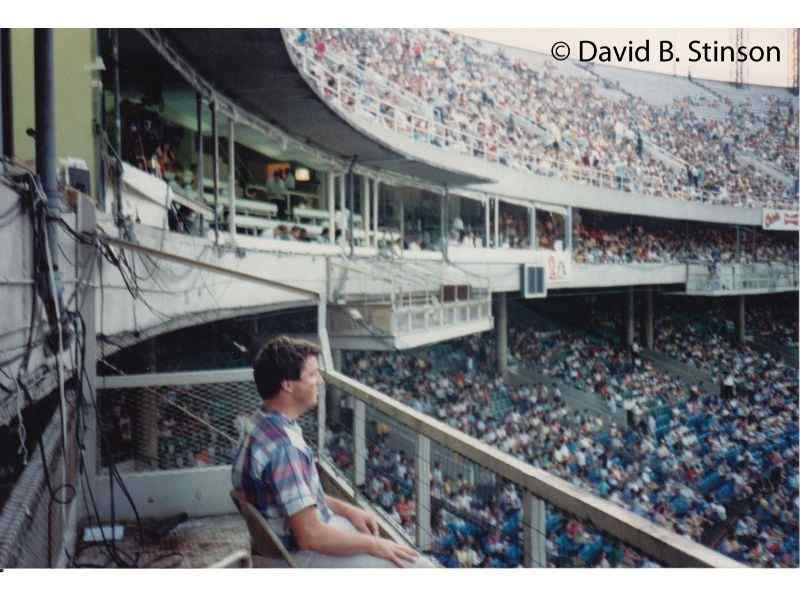
When not in use by the media, they provided an excellent view of the proceedings below.
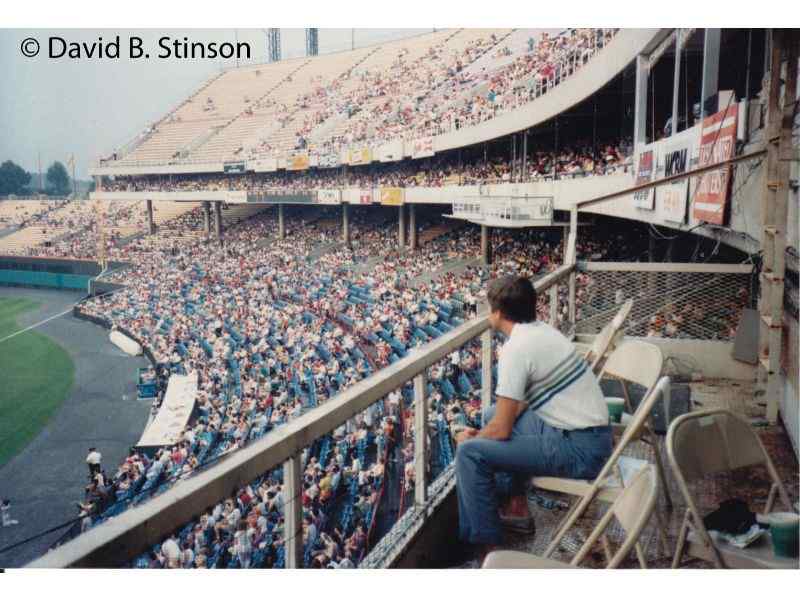
Once the Orioles departed after the end of the 1991 season, Memorial Stadium hosted other sport teams including the minor league Bowie Baysox in 1993 and 1994 (partial season), the Baltimore Stallions of the Canadian Football League in 1994 and 1995, and the National Football League Baltimore Ravens in 1996 and 1997.
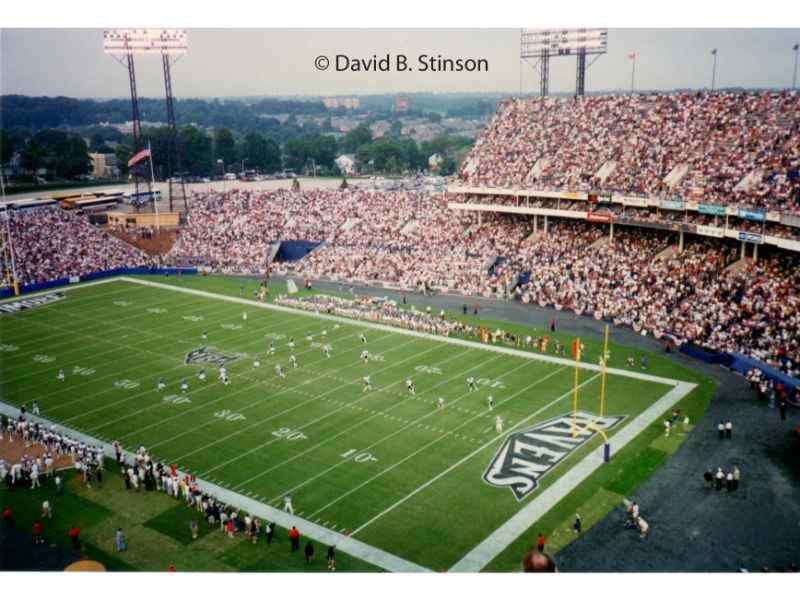
The Ravens’ two seasons at Memorial Stadium would be the final professional sports games ever played there.
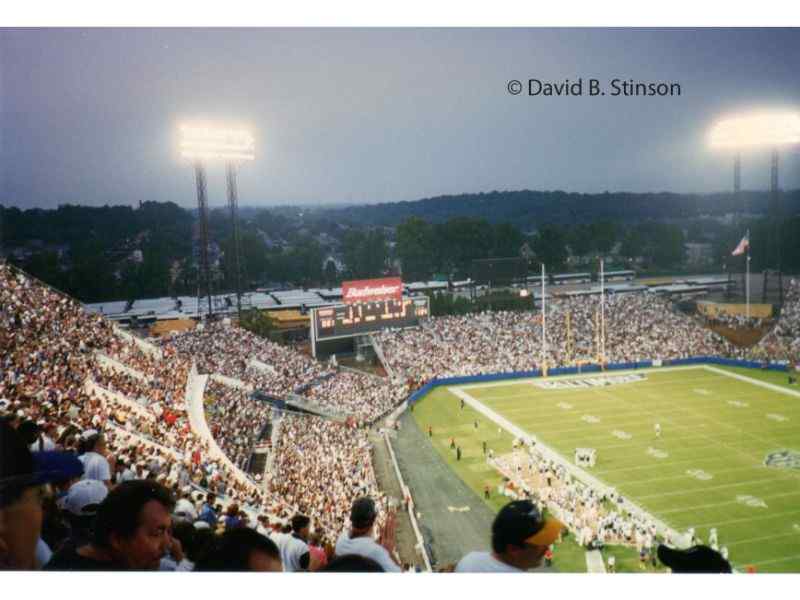
The Baltimore sports world turned its attention 30 blocks south of Memorial Stadium, to where where the Maryland Stadium Authority had constructed the city’s new stadia.
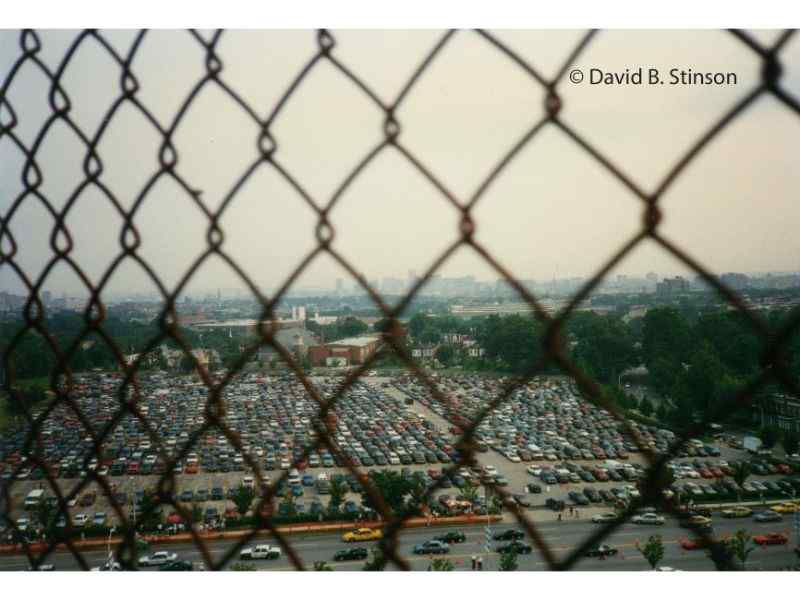
Once the Ravens departed, there was nothing to do but wait for Memorial Stadium’s demolition.
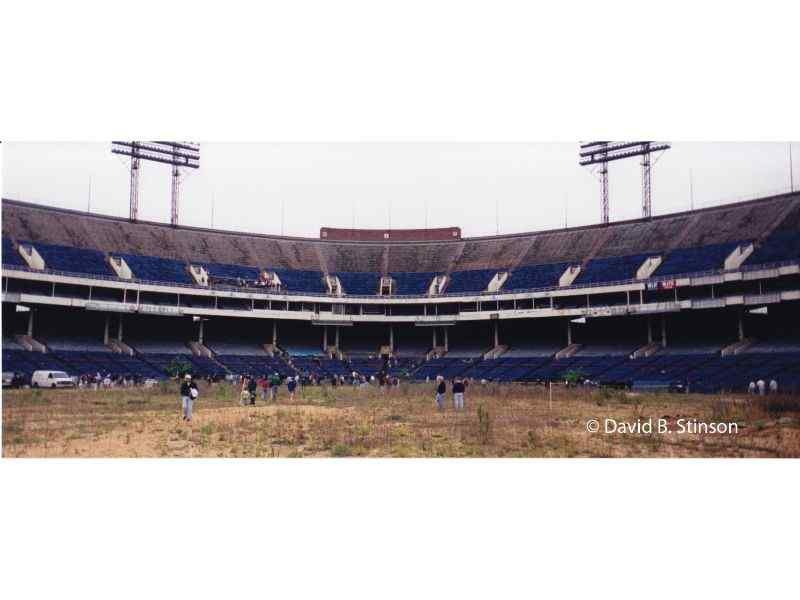
In May 2000, the Maryland Stadium Authority gave Baltimore sports fans one last chance to visit the stadium and its playing field.
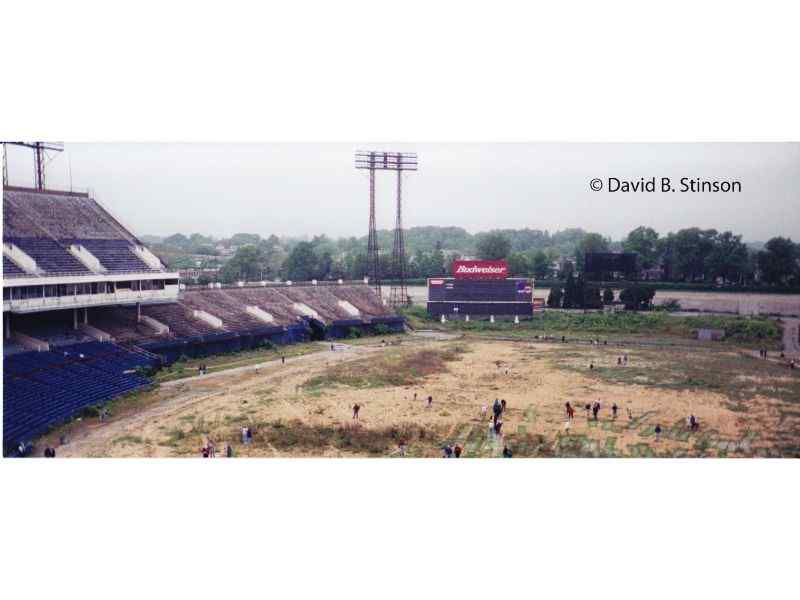
By that time, workers already had marked items, including signage, which was to be removed prior to demolition.
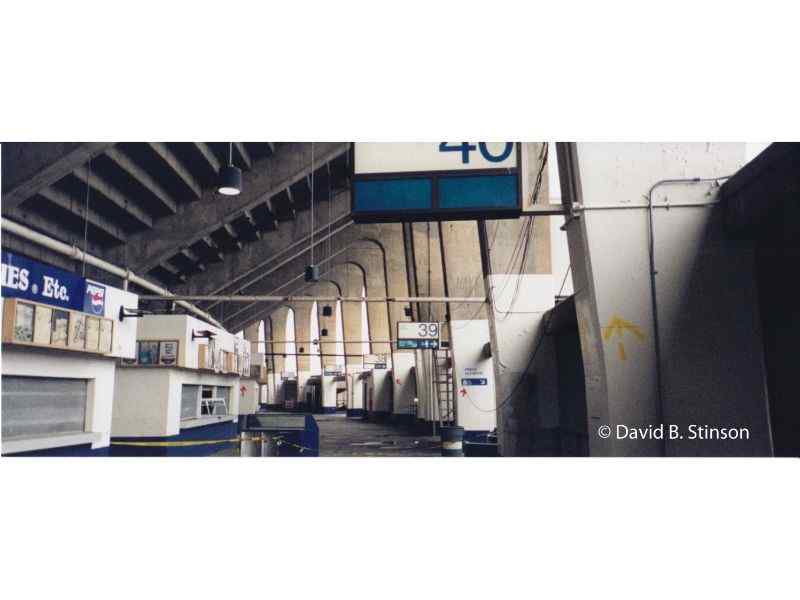
Ultimately, the lockers from the players’ dressing rooms were removed and sold as part of an auction held by the Babe Ruth Museum.
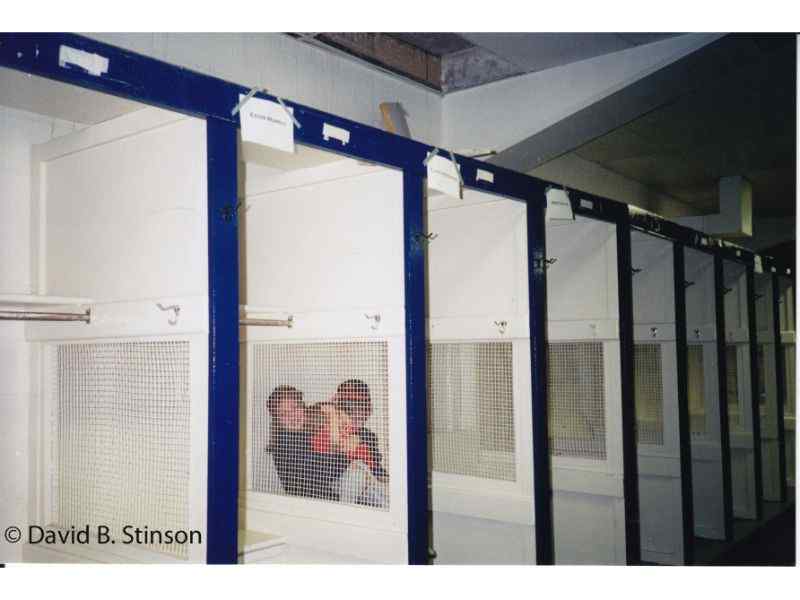
The majestic light stanchions were torn down and sold for scrap.
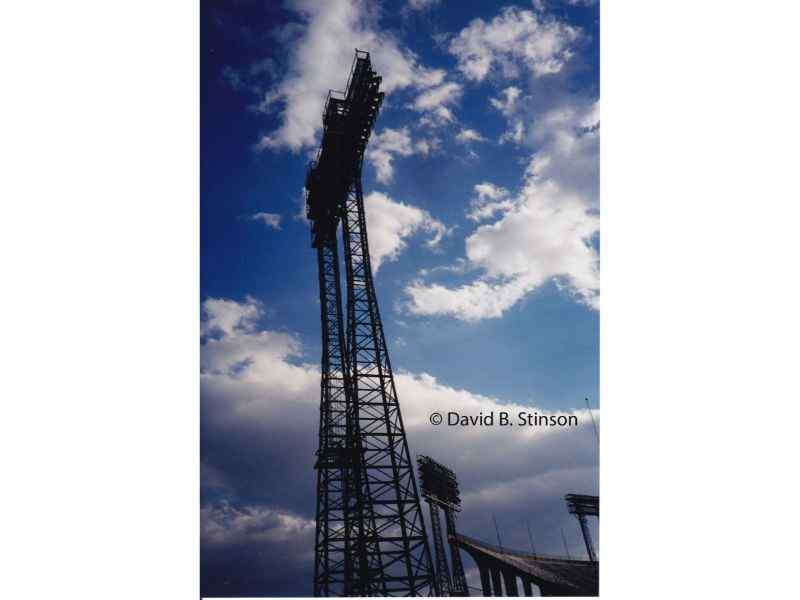
Astroturf, presumably used on the sidelines and the areas around the Raven’s grid iron, was rolled up and left in piles outside the stadium.
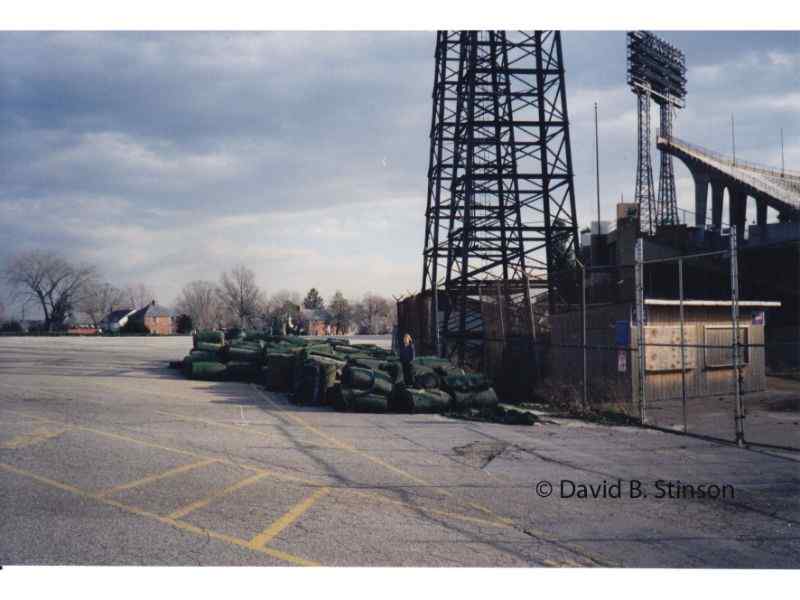
The end game for Memorial Stadium wasn’t pretty. A valiant fight by preservationists held off destruction of the stadium’s front facade and memorial plaque while the city debated whether a portion of the structure was worth saving.
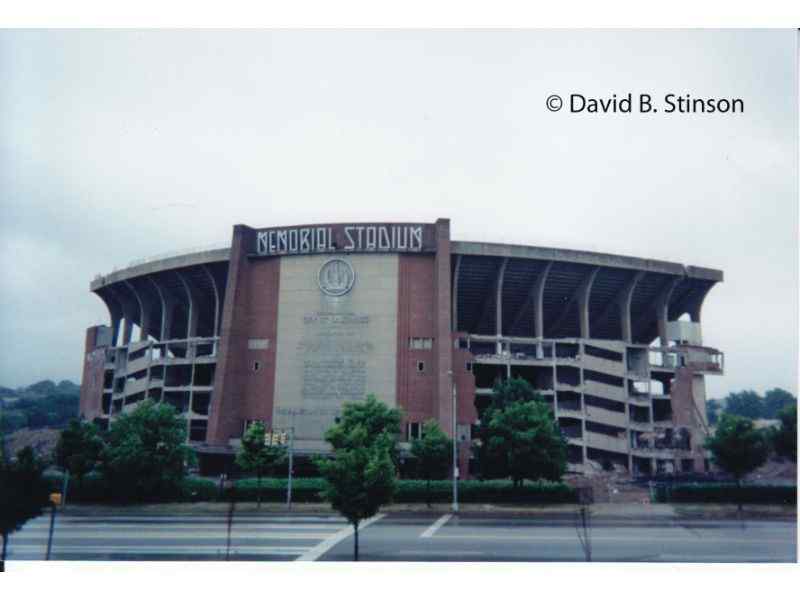
Ultimately, the preservationists and those who care about history lost, and the remaining portion of Memorial Stadium met the wrecking ball.
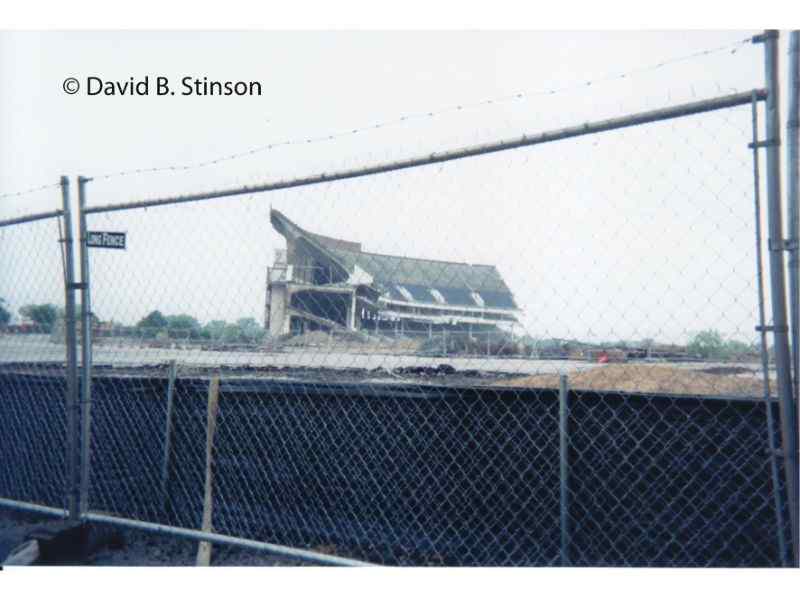
One of the last vestiges of Memorial Stadium was the outfield scoreboard. If my wife would have let me, I would have bought it and moved it to my back yard. Whether the neighbors would have complained became a moot point.
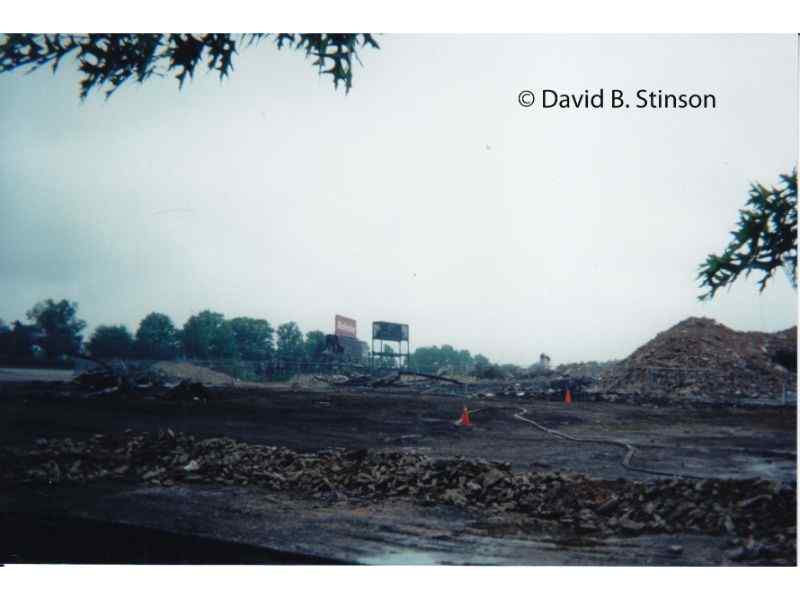
Which brings us to what was built in the place of Memorial Stadium. First was a much-needed youth center in the form of the Harry and Janette Weinberg Family Center at Stadium Place.
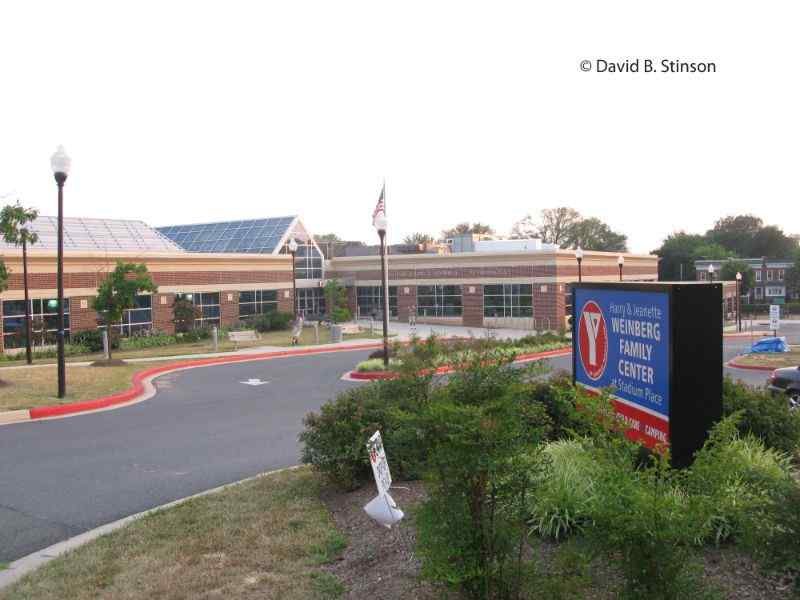
Inside the YMCA’s gymnasium is signage from Memorial Stadium’s Ring of Honor which once graced the facade between the upper and lower decks.

The names of prominent Orioles and Colts ring the gymnasium. At an autograph show in 2006, Frank Robinson signed autographs beneath his Ring of Honor sign.
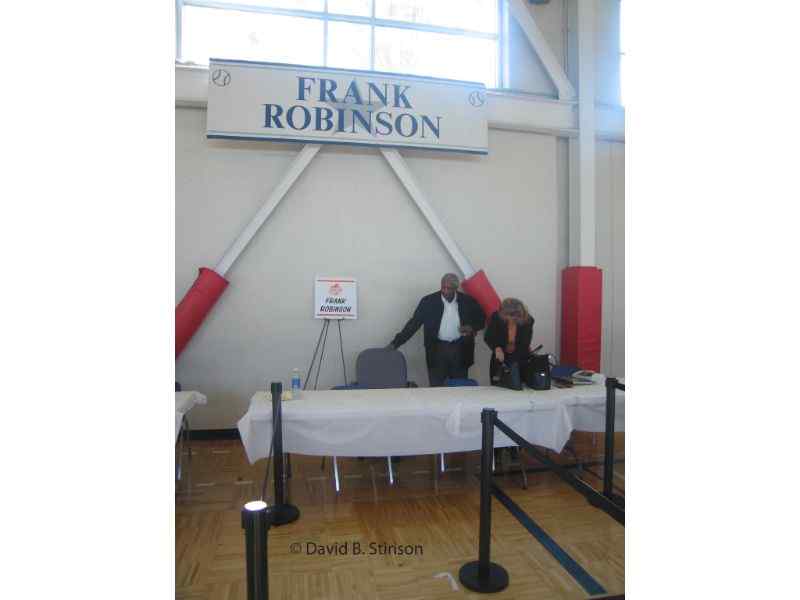
For several years after Memorial Stadium’s demolition, all that marked the lost ballpark was a home plate placed in the approximate location of the original.
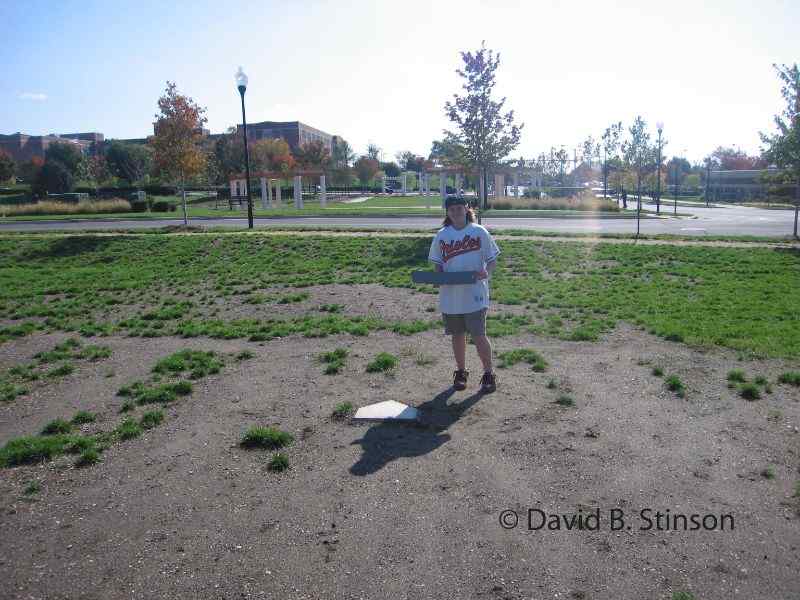
In 2010, that changed, thanks to the vision, talent, and generosity of Cal Ripken, Jr., and his brother Bill Ripken. The Ripkens, with the help of the Cal Ripken, Sr. Foundation, and other charitable groups and donors, constructed a youth ball field on the former site of Memorial Stadium.
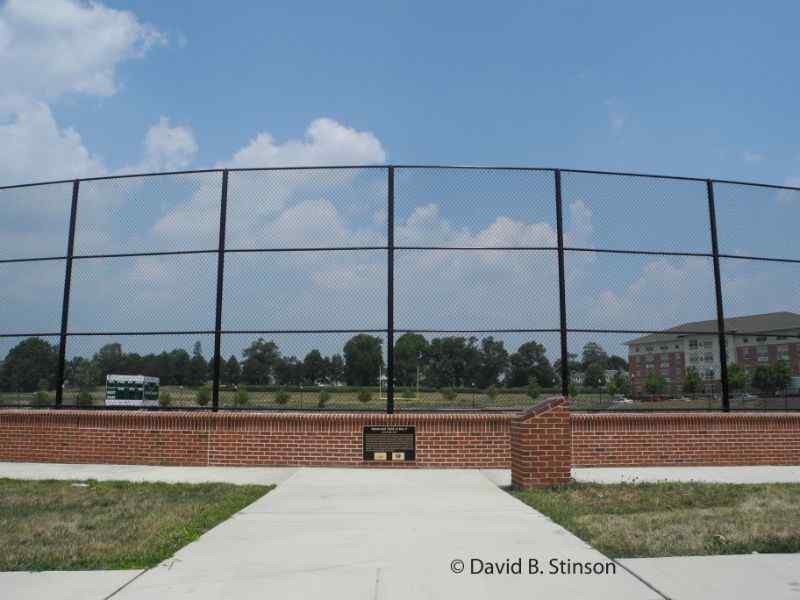
A plaque placed behind home plate notes: “This is the very site where so many where so many Baltimore legends once played and represented our city with pride. In 2010, the Cal Ripken, Sr., Foundation dedicates this field creating a safe, clean place for kids to play, learn and grow.”
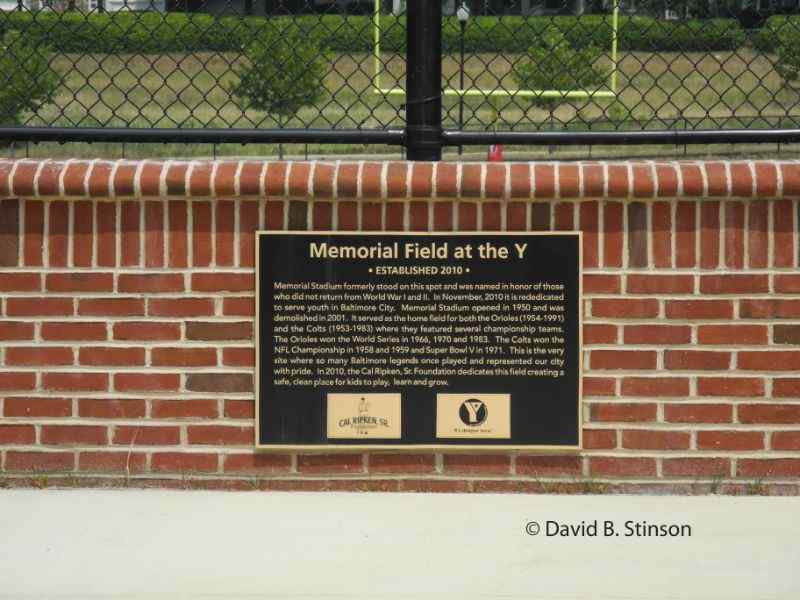
A separate plaque honors the vision and contributions that Cal Ripken, Sr., made to baseball.
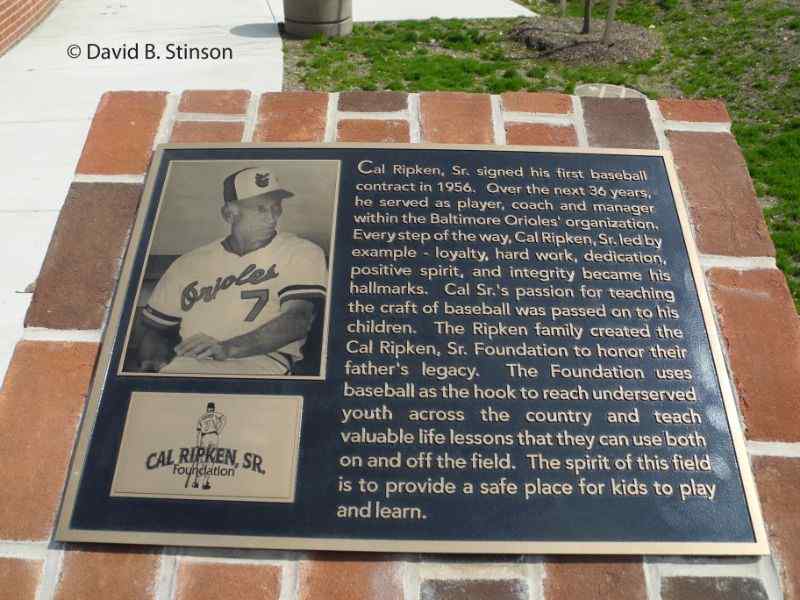
The playing surface of Memorial Field is AstroTurf Game Day grass.
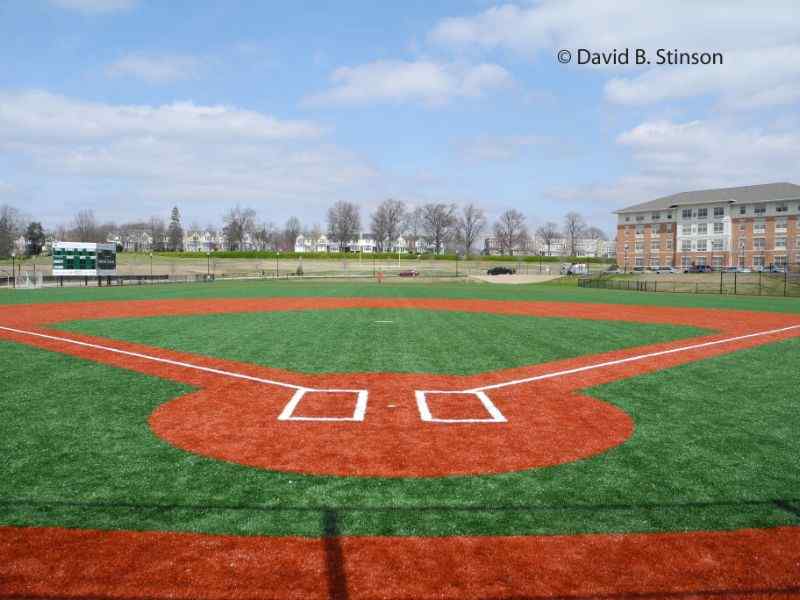
The Ripkens’ vision and generosity has brought baseball (and football) back to the playing field at the former site of Memorial Stadium.
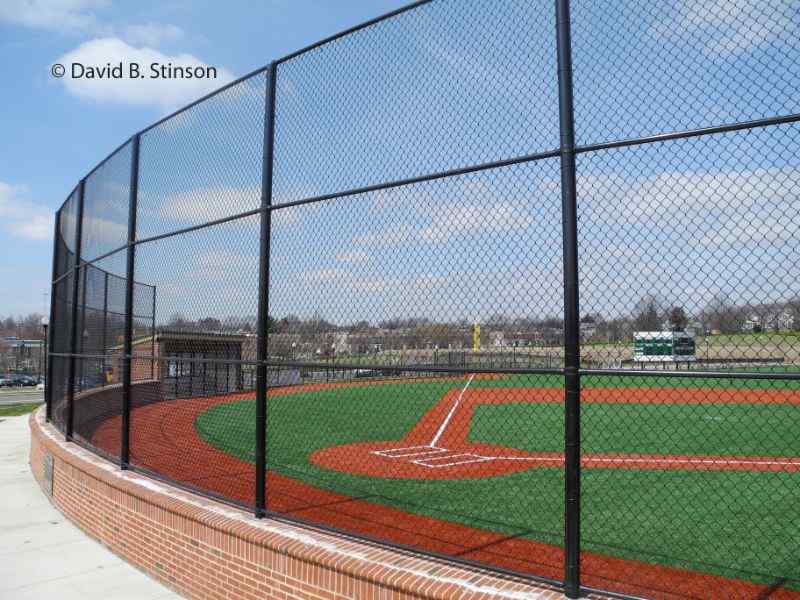
In the former location of right field and the seating bowl along first base is housing for senior citizens.
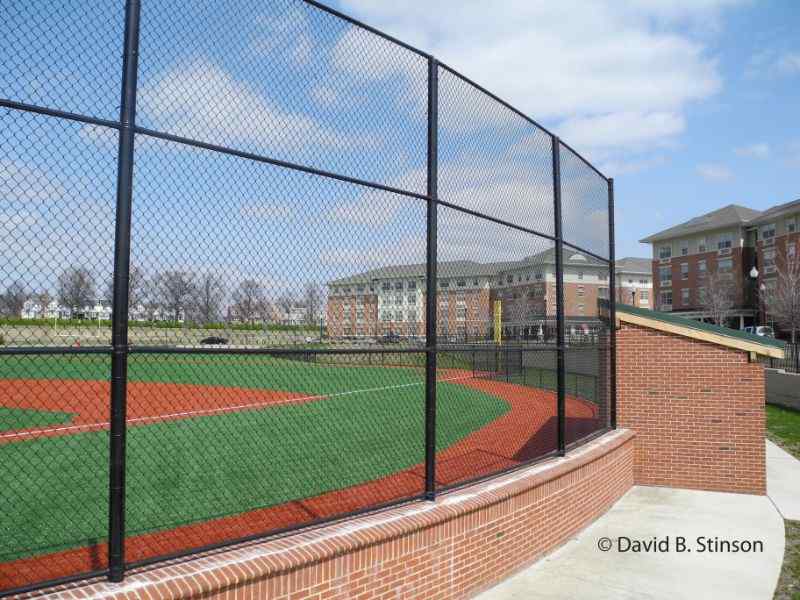
In deep center field, a goal post once again stands in the approximate location of the northern most goal post of Memorial Stadium.
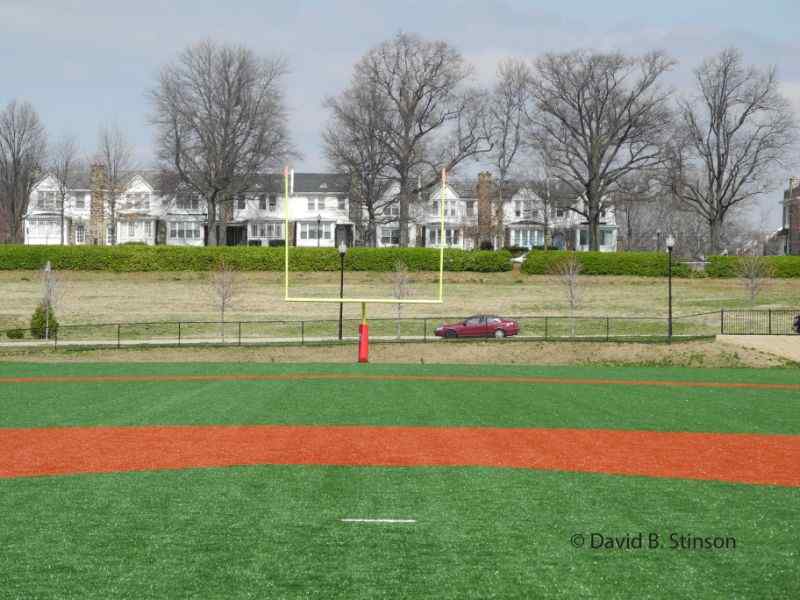
The Baltimore Orioles also have done their share to commemorate Memorial Stadium by constructing a plaza in honor of the ballpark, complete with some of the lettering from the orginal stadium plaque, which says “Time will not dim the glory of their deeds.”
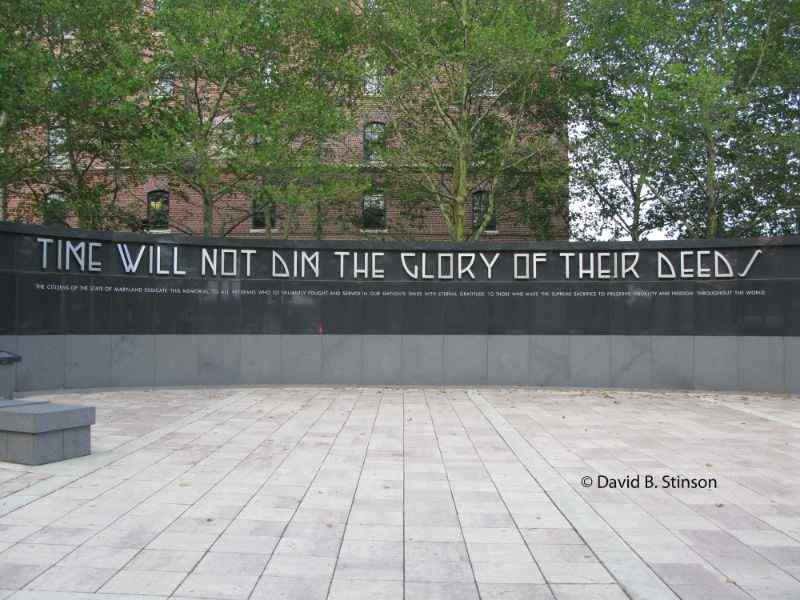
An urn that once was encased in the wall of Memorial Stadium is on display next to the Memorial Wall at Camden Yards.
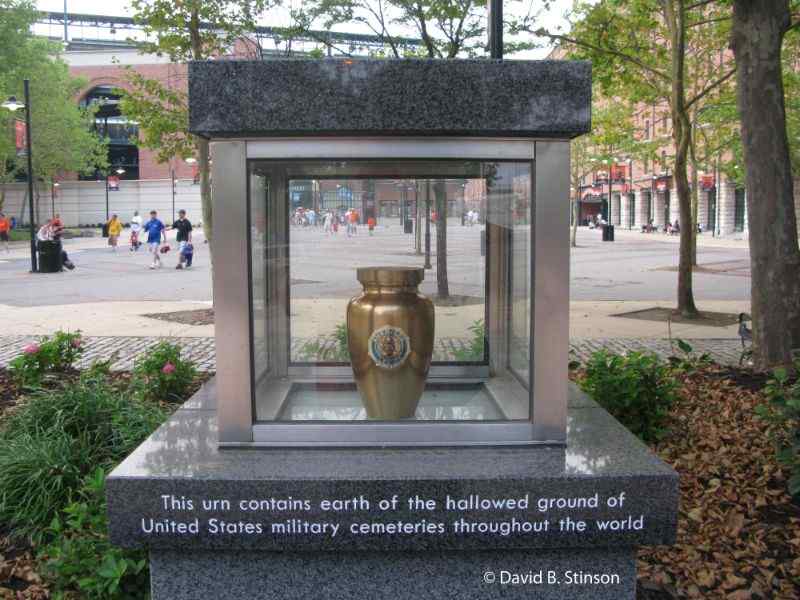
A separate granite plaque at Camden Yards also commemorates the memory of Memorial Stadium.
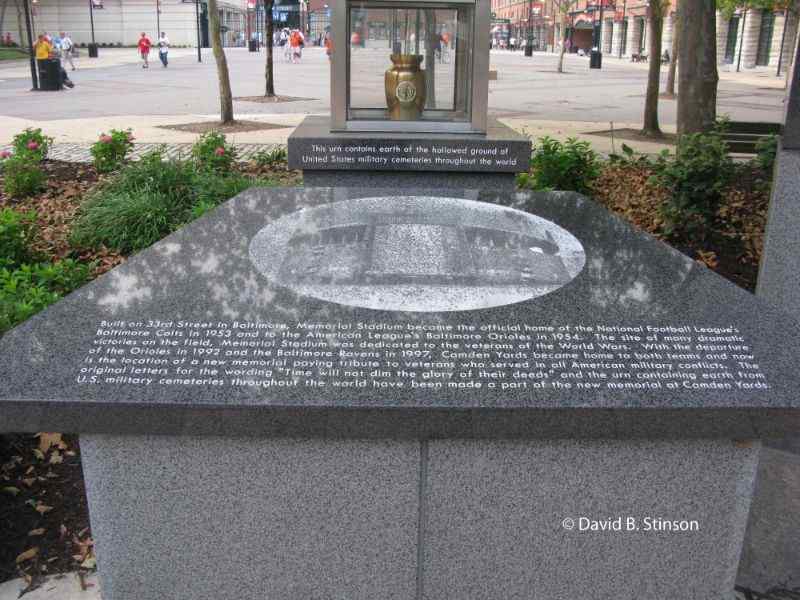
The Sports Legends Museum (located next to Camden Yards in Baltimore) likewise includes displays honoring the memory of Memorial Stadium.
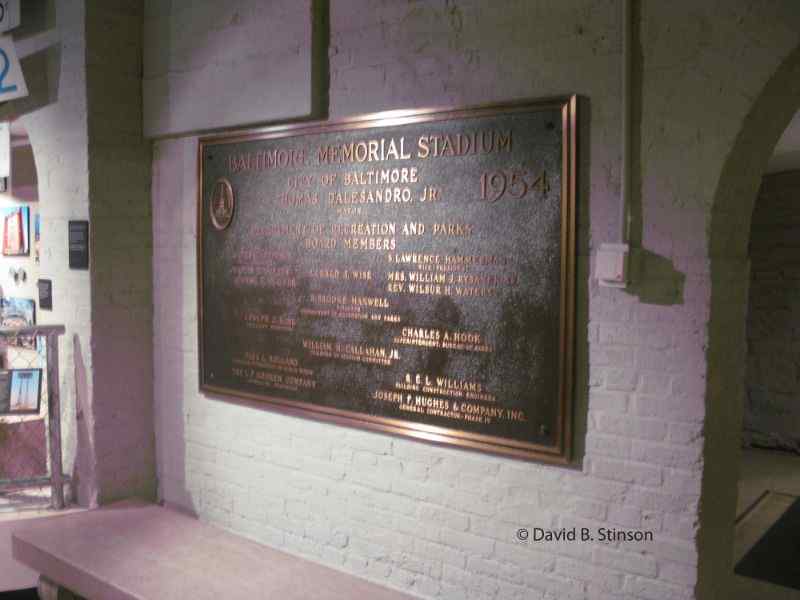
The original 1954 Memorial Stadium corner stone is located in a display in the basement of the Sports Legends Museum.
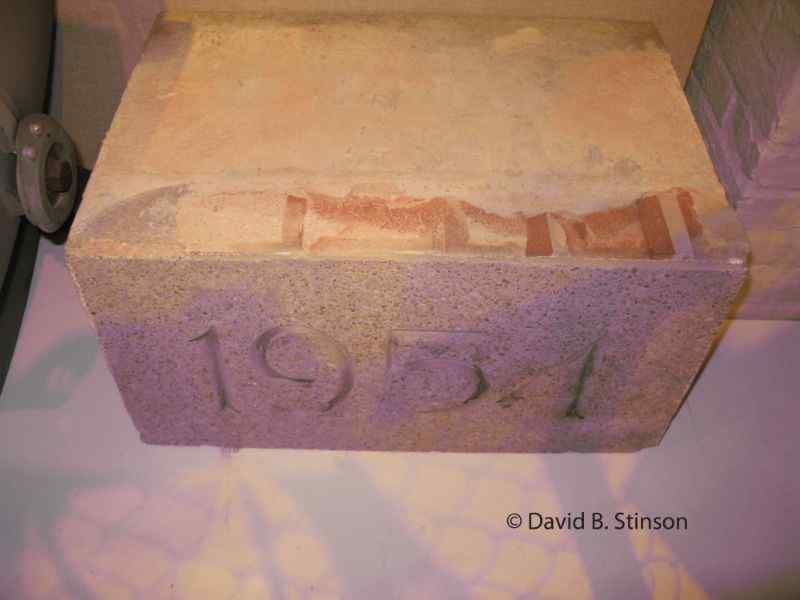
The museum also includes a variety of items from Memorial Stadium, including signage and stadium seats.
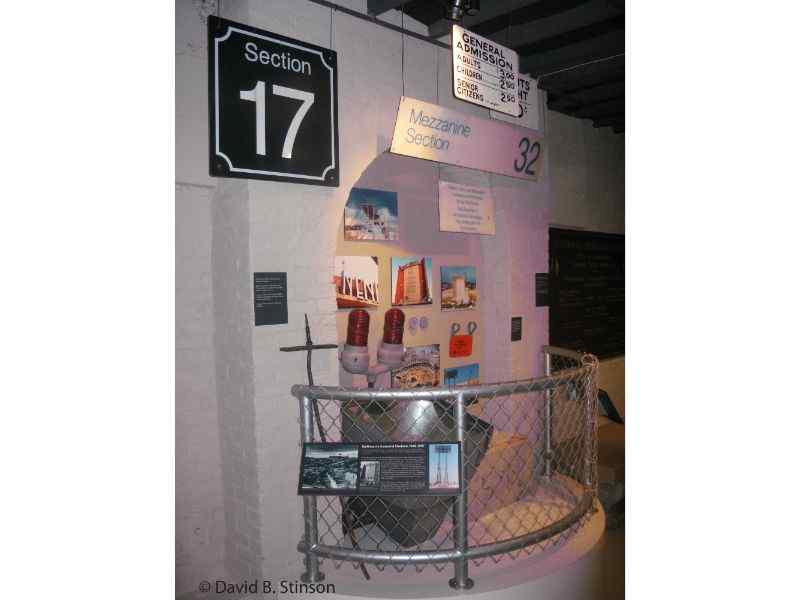
One final tribute to Memorial Stadium can be found at the Cal Ripken baseball Academy complex in Aberdeen, Maryland. One of the many youth baseball fields is named in honor of Memorial Stadium
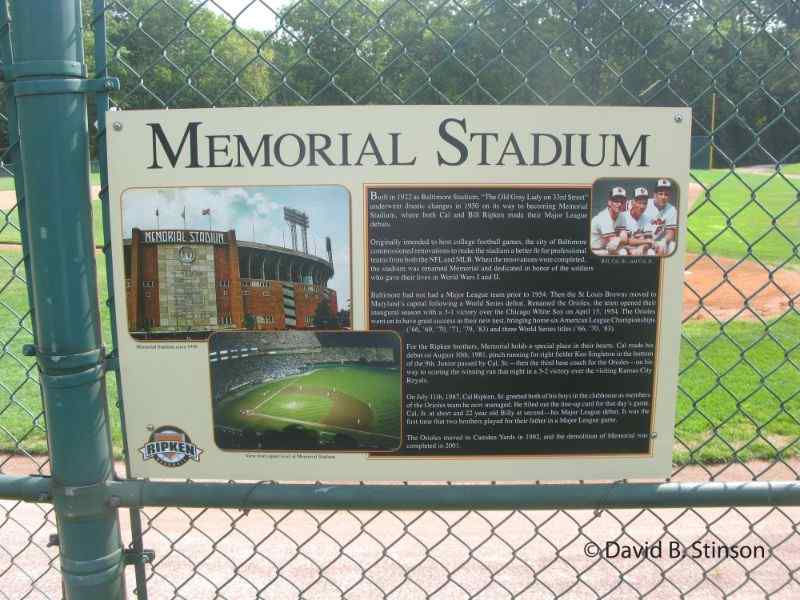
Once again, the Ripken Brothers have done a fine job keeping the memory of Memorial Stadium alive and giving young baseball fans a chance to play in the shadow of Memorial Stadium.
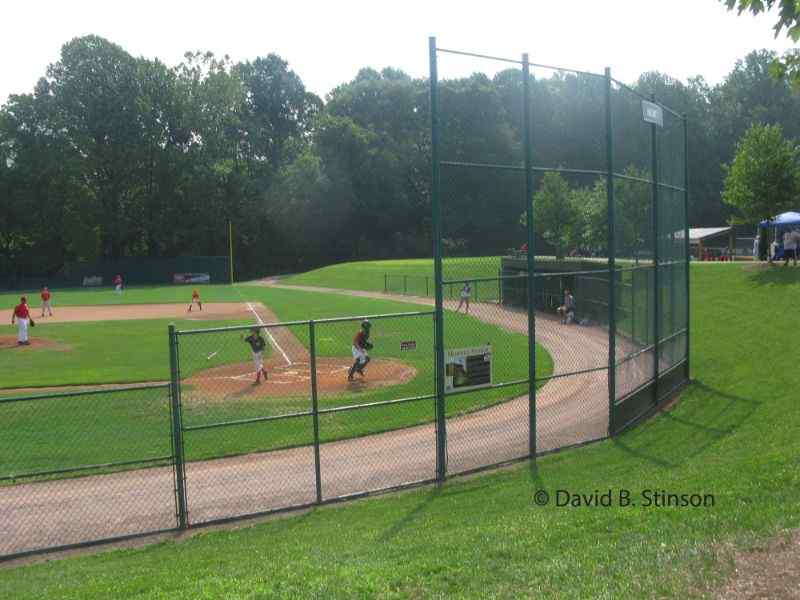
While Memorial Stadium has joined the every-growing list of lost ballparks, its memory lives on, not only at the site of the former ballpark, but in locations in and around Baltimore. I even have a few stadium seats from Memorial Stadium lined up in my basement, awaiting the next game.
